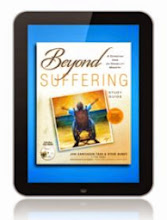I was listening to Dennis Prager on the radio the other day. He is always very insightful. He made a comment something to the effect that society typically only recognizes evil when it is done...only recognizes evil when it is dead evil not when it is live evil. For example when we look back on things like slavery in America, or racial prejudice we see it for the evil that it is and was. Yet at the time it is as if many were blinded to the evil, perhaps denying that it even existed. Once again thinking about racial predjudice, one cannot imagine that dominant groups were unaware. Yet they may have been. I often have to caution my students when looking at issues of disability, that we look through 2009 eyes at problems that were not understood as problems in the 1960's. Or, if they were understood, it was only by a few. That doesn't mean that the problems were not problems or were not evil. But simply that we have had the benefit of years of societal evolution and analysis relative the events of the past such that they appear crystal clear to us.
I have the feeling that the church is beginning to wake up to the evil of exclusion of persons with disabilities. This is a very promising change, as if what Prager says is true, then perhaps we are beginning to see the death of that evil. I feel, sometimes, as if I am looking at the 1960s through 2009 eyes. I have stated elsewhere in this blog that I don't know why God has allowed me to see the injustice when so many are not even aware of it. I see the shock in my student's eyes when I ask them about their church experience, when they report on interviews with their pastors and when they are exposed to the information provided in class. It is literally as if dark glasses were taken off of their eyes. "I had no idea" is a common refrain. The good news is that they now have the equivalent of 2009 eyes looking at 1960 and Lord willing, this will cause them to make an impact for social justice in their own church settings.
If the Lord allows, I hope to be in a room someday, where, after years of inclusive attitudes by the church toward persons with disabilities, someone will say, "Remember then they used to exclude these people? I can't believe that people would have actually done that. What were they thinking?" I have had that experience relative to young people and issues of race. I hope to have the same experience relative to issues of disability, particularly in a church setting.
McNair
Thursday, December 10, 2009
Subscribe to:
Post Comments (Atom)











4 comments:
I agree that we do have a huge benifit over people from 1960 and before. Our time and culture have been able to see a change for the better in the prejiduce of persons with disabilities. Because of this class, I have been exposed to the sad and despicable injustices done to these people. However, the bad news is that we are a very select group and unfortunately only a small speck compared to where we should be. But the hope now lies in me, and in all whom I share the devistating truth about what is really going on in our society.
Scrooge notices the two children hidden in the robe, at the feet, of the second Spirit. The Spirit compels Scrooge to observe their desperation and need. Scrooge, because he could say no more, asks:
"Spirit! Are they yours?...
They are Man's!...and they cling to me. This boy is Ignorance. This girl is Want. Beware them both...but most of all beware this boy, for on his brow I see..Doom, unless the writing be erased. Deny it!'
'Have they no refuge or resource?'
'Are there no prisons?..Are there no work-houses.." (Dickens)
Perhaps one of our most important callings is to remove ignorance from the Church regarding persons with disability, by demonstrating for the Church the essential sameness of all persons, in God's eyes.
Paul was blinded, for a time, when Jesus made truth inescapable for him. When he realized his ignorance, the scales fell from his eyes and he saw the truth of Christ.
We musn't rail against or condemn ignorance. We must overcome it with our works and our testiomony.
In beginning this venture with you in the Disability Studies Masters program I am being shown things that I knew about how people treated those with disabilities in the 1960's but to see the images of Willowbrook and hear the stories I became outraged. Especially being a parent of two that are considered special needs because I cannot fathom how the mothers of these children could allow this to go on. But after reading this blog I am reminded that I am looking at the situation with years of evolution. I am humbled now, to think that a mother having been told that this was the best atmosphere for her child having to walk away tearfully blaming herself for the ailments of her child. I am empathetic now because of having to place my own daughter in a group home unable to meet her needs because society deems that saving my family isn't cost effective. Thank you for reminding me that because of what I have experienced myself and what I have seen I can aide in shifting the paradigm to something very different then what we see today in our churches!
When the church ignores the disabled, and claims, “I didn’t even realize”, hypocrisy is committed. The Bible so clearly outlines what is expected of us as Christians. Jesus made it clear he loved those whom others disregarded, ignored, or condemned. He loved the children, the prostitutes, the sinners, the disabled. Loved them! Wanted more of them around him and less of the righteous. Asked for them specifically. In Luke 14:21-23 Jesus says “Go out quickly into the streets and alleys…bring in the poor, the crippled, the blind and the lame…compel them to come in, that my house maybe filled.” Jesus wants the disabled, the poor, and the crippled. His house is empty without them. How could the church miss this one? I mean, we could all sit around in our upper-middle class Bible study and talk about Jesus’ mercy, but is that what He wants? I’m not sure. It’s hard to hear a message about bringing in the disabled and loving the poor, when you’re surrounded by people who have it pretty good, and no disabled people. Seems like a giant contradiction. My question is, what is the reason for the exclusion of disabled people? The church should first be asked, “Who did Jesus call you to minister to?” and then “So why aren’t more disabled individuals apart of your congregation?”
Post a Comment